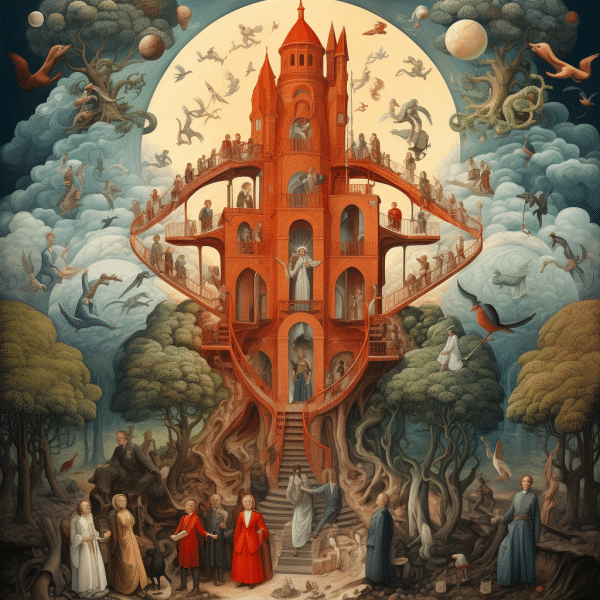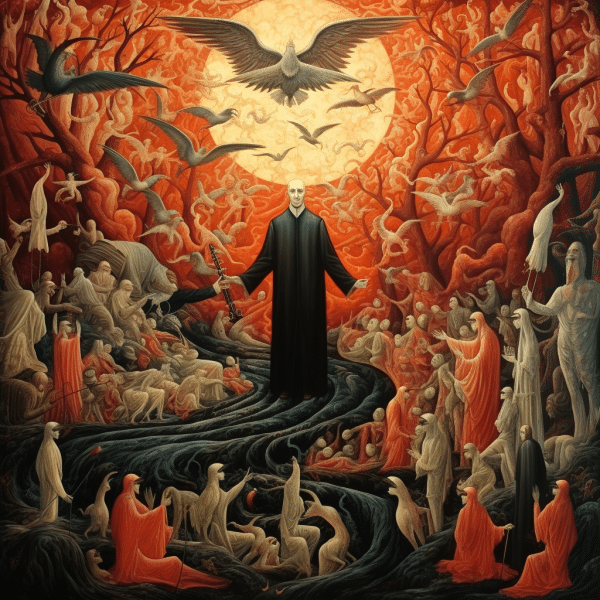

Centuries ago, a man named Arius stirred controversy in the church claiming Jesus was created and finite. And that he was not of equal divinity with the father. A concept that came to be known as the heresy of Arianism.
Arianism’s claim did not come easily and was rejected by many Christians. But what was really wrong with it? Stay tuned to learn more about Arianism and why it’s wrong.
Why Is Arianism Wrong?
Here are reasons why the Catholic, Orthodox, and Protestant churches roundly rejected Arianism.
It Devalues Jesus
Arianism teaches that Jesus was created by God and is lesser than him, devaluing and demoting him from full Godhood. However, this is not true, and there are several verses in the Bible refuting these ideas. Some of them include:
John 1:1-3 says:
“In the beginning was the word, and the word was with God, and the word was God. He was with God in the beginning. Through him, all things were made; without him, nothing was made that has been made.”
This verse shows Jesus as the word and that he was there in the beginning with God and as God. It also says nothing was made without him, meaning he’s not a created being.
Moreover, John 8:58 says, “Before Abraham was born, I am!” Note that this is not a case of bad grammar. But the Hebrew phrase “I am” is the one God gave as his name to Moses in the burning bush (see Exodus 3). In this verse, Jesus declares himself God, the great I Am, also his eternal existence.
It Advocates That There’s No Participation Of God With Humanity
In Arianism, there is no participation of God in humankind. That’s because the savior (Christ) is not God but a human being. The human being became the first creation of God
or a remarkable man God adopted as his son.
It Advocates That Jesus And God Are Not Equal
The Bible teaches that Jesus is in equal nature to God the father. And that he’s the creator of everything, including himself. Colossians 1:6 says:
“For by him (Jesus) all things were created: things in heaven and on earth, visible and invisible, whether thrones or powers or rules or authorities; all things were created by him and for him.”
This verse shows Christ and God are equal as they both existed before anything and are creators of everything.
About Arianism
The critical issue in Arianism is whether or not Christ the son and God the father are equal in deity and coeternal.
According to traditional Arianism, God created Jesus as the first act of creation. A letter from the fourth-century Arian bishop of Milan, Auxentius, says:
“One true God… alone unbegotten, without beginning, without end, eternal, exalted, sublime, excellent, most high creator, the epitome of all excellence… who, being alone… did create and beget, make and establish, an only-begotten God (Christ).”
Athanasius also stated that in his ‘Four Discourses Against the Arians’:
“God was not always a father… once God was alone, and not yet a father, but afterward he became a father. The son was not always… (he was) made out of nothing, and once he was not.”
Put simply, Arianism says that the father created Jesus and that he is not of the exact nature or substance as the father. Instead, he’s a created, finite being.
Origin Of Arianism
Where did Arianism come from? This controversial heresy sprang up during the early fourth century in Egypt, during Roman Emperor Constantine the Great’s rule, the first Roman emperor to support Christianity.
Arius, a Christian priest in the late third and early fourth century, founded the claims that were later named after him. Arius learned his doctrine from a presbyter (Lucius) from Antioch.
Arianism ideas spread in Alexandria, where Arius was a decon, although his career was rocky. He and his followers significantly influenced people in the Alexandrian schools, and soon, his ideas spread across the eastern Mediterranean. Arius’ theological poems and songs from his book “Thalia” were sung by travelers and laborers, spreading his ideologies even further.
Soon, prominent church leaders started accepting Arius’s ideas or those close to them. Eusebius of Nicomedia, an influential bishop and a close counselor to Emperor Constantine, was among the first to accept Arius’ doctrine.
Who Was Arius?
Arius was born in Libya around 250 A.D. He taught in Alexandria, where bishop Peter appointed him as a deacon. Soon, Arius was briefly excommunicated but later reconciled with Peter’s successor, Achillas, and even attained a presbyter position. As usual, Arius fell out with the new bishop and later (321) was denounced in a local synod for heterodox teaching.
Despite the fallout and being excommunicated, Arius’ teachings proved so widespread and problematic that Emperor Constantine decided church leaders had to gather and talk the issue out. This led to the formation of the First Council of Nicaea, where about 300 bishops were called from throughout the Roman Empire to settle the matter.
The bishops discussed and argued for weeks about the numerous points of Arius’ doctrine and practice, serving the first ecumenical council. Once done, they decided upon a creed that they all signed stating:
“We believe in one God, the father almighty, maker of all things visible and invisible; and in one Lord, Jesus Christ, the son of God, begotten from the father, only-begotten, that is, from the substance of the father, God from God, light from light, true God from true God, begotten not made, of one substance with the father, through whom all things came into being, things in heaven and things on earth.”
Arius was told to sign the creed, which he refused, and was exiled. He later returned from exile through Constantine’s sister’s efforts and was told to sign a compromise. But before he could do that, he collapsed and died in 336 in the streets of Constantinople.

Conclusion
There are many reasons why Arianism is wrong and rejected by most Christian denominations. It devalues Jesus Christ, advocates that there’s no participation between God and humankind, and teaches that God and Jesus are not equal, which is all against the holy Bible’s teachings.







